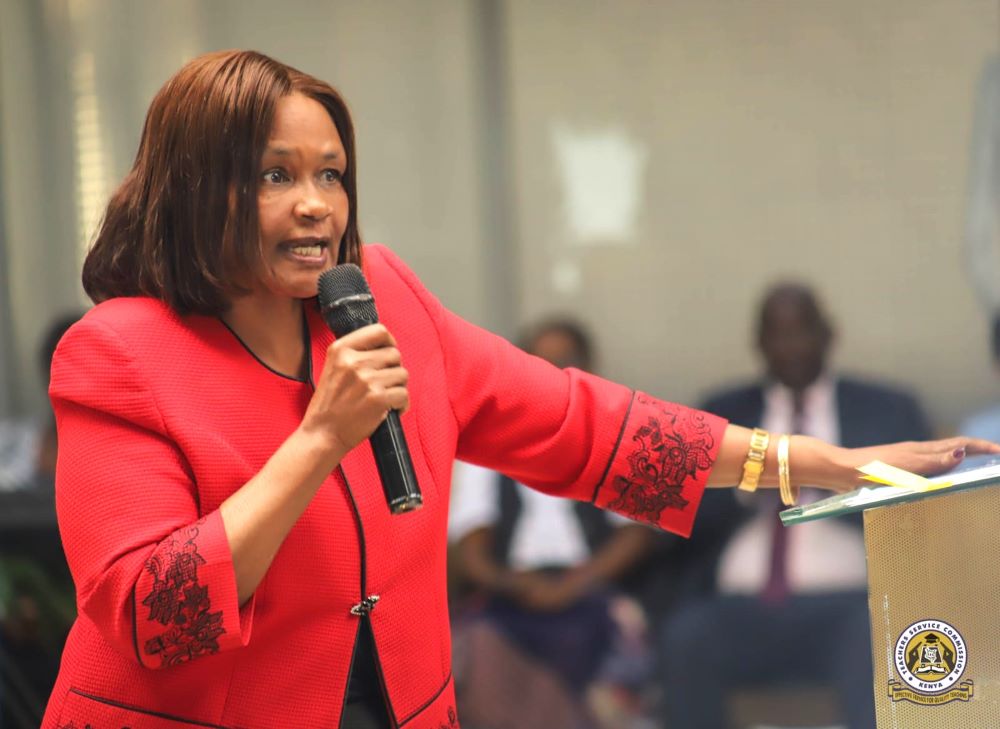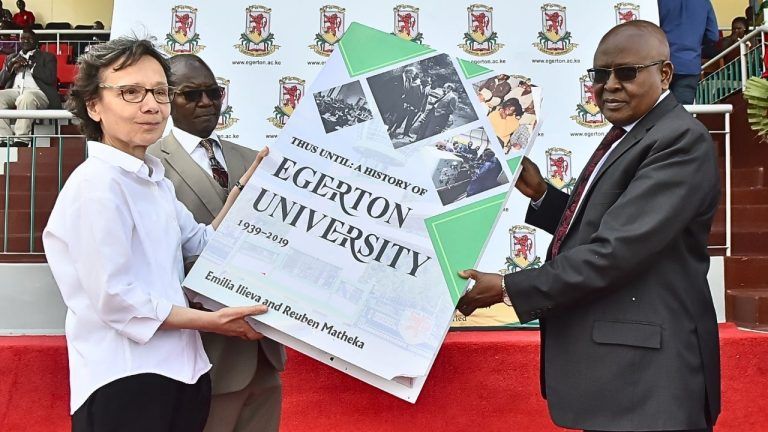By George Otieno
Junior Secondary School (JSS) will be taught by secondary school teachers who are registered by the Teaching Service Commission (TSC) and meet the requisite qualifications, TSC Director of Quality Assurance and Registration Dr. Reuben Nthamburi has insisted.
Addressing over 1,000 managers and directors of private schools in a meeting held in Mombasa by the Kenya Private Schools Association (KPSA), Dr. Nthamburi said every secondary school in the country must have a junior secondary school section.
The meeting was convened to look into ways that private school investors can help in next year’s Competency-Based Curriculum (CBC) absorption.
Nonetheless, Dr. Nthamburi also mulled over the conversion of empty classrooms in primary schools into JSS.
He said anyone getting engaged in teaching junior secondary must either have a diploma or a graduate degree and must be trained and qualified to teach in secondary school.
He added that the CBC curriculum emphasizes and focuses on quality and value addition to the learner and that it was time education players guarded the profession by attracting and only engaging quality tutors.
The new CBC teacher education programme, Dr. Nthamburi said, will consist of three main parts.
The first is a broad-based undergraduate or diploma programme leading to a Bachelor’s degree or diploma with some education units near the end of the experience.
The second phase is a student-teaching experience in a public school at the end of undergraduate coursework, while the third will be a one year full-time teaching as an intern in a public school with little ongoing linkage to university preparation.
“The new CBC teachers of the future will spend far more time getting practical experience in schools before they graduate. They will go through two terms of teaching practice unlike the past where they only went through one term,” Dr. Nthamburi clarified.
He added that all future teacher preparation programmes will demand general technological proficiency, including the development and the use of computer-based assessments.
“The Commission is making projections and preparing for the availability of teachers to handle both the junior and senior secondary school learning areas,” he said.
Considering the unavailability of the needed number of tutors to effectively take part in the CBC curriculum, the TSC director said there were some learning areas such as the Pre-Technical and Pre-Vocational Education, Life Skills Education, Agriculture, and Health Education that will need special attention in order to have the required number of teachers.
Teachers will have to be adequately retooled in order to implement some of the learning areas in the junior secondary school level. A Home Science or a Biology teacher for instance can be trained to teach Health Education whereas the PE teacher can teach Sports and Physical Education subject.
Dr. Nthamburi emphasized on improving quality learning outcomes to ensure all-round development of learners. He said learning outcomes determine the future life of a child whereas improved learning outcomes help solve challenges in the society through problem-solving, innovation, critical thinking and creativity.
“Improved learning outcomes help students learn more effectively and determines a child’s ability to identify career choices for life and at the end, ensures the achievement of national goals of education,” the director said.
He advised that those interested in pursuing either a Diploma in Secondary Teacher Education (DSTE) or a Diploma in Technical Teacher education (DTTE) must have a minimum of C+ (plus) in KCSE or equivalent at senior school and a C+ (plus) in two teaching subjects.
Professionals in a particular field such a swimming will be allowed to teach swimming lessons as long as they are affiliated and registered with a recognized government association.
As a Commission, the director said, they will emphasize on increased teacher-learner contact time so that teachers can adequately cover curriculum content in a timely manner and also have time for learners to consult on challenging concepts.
The teaching-learning contact time will also assist in adequately carrying out monitoring of learning progress, in addition to creating ample time to support holistic development of learners’ competencies like co-curriculum activities. It will also enable meaningful assessments of learning and preparation of informative reports on learners’ progress.
Additionally, Dr. Nthamburi said that TSC will regulate entry standards to the teaching profession during pre-service training, and also ensure only trained and qualified teachers are registered in readiness for recruitment into service.
He said that TSC will provide technical support in vetting of shortlisted teachers during recruitment for service in private schools and further continue offering the needed support in capacity development of teachers.
He encouraged that KPSA utilizes teachers who are registered by the Commission, and urged private school teachers to enroll for the Teacher Profession Development (TPD) in order to be well equipped with the required CBC skills.






